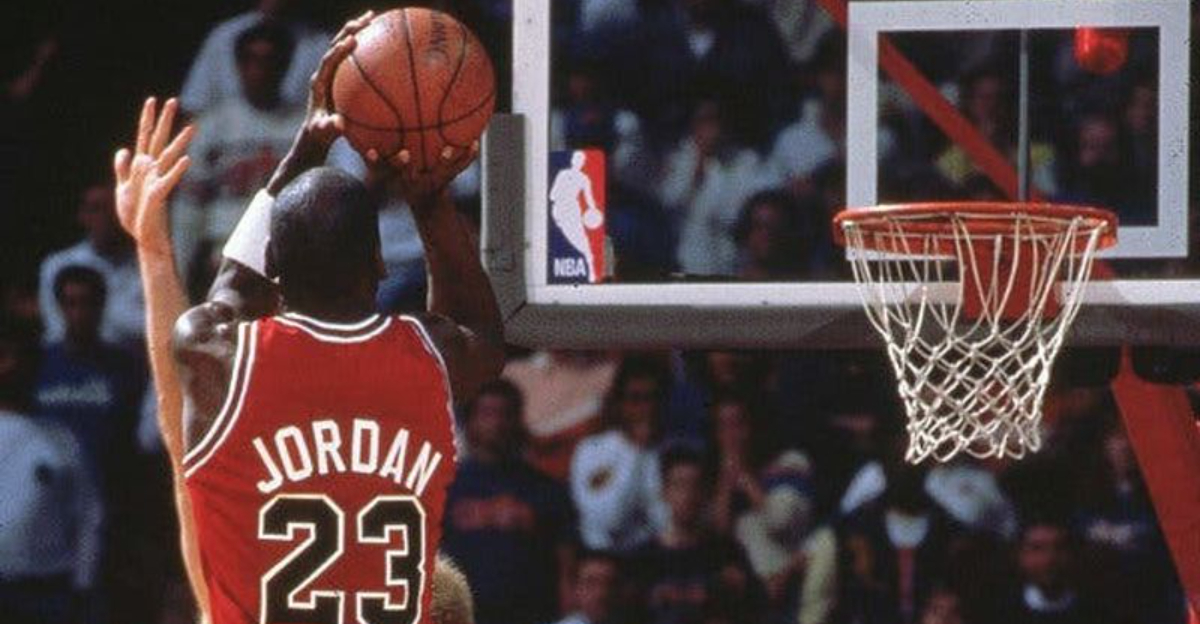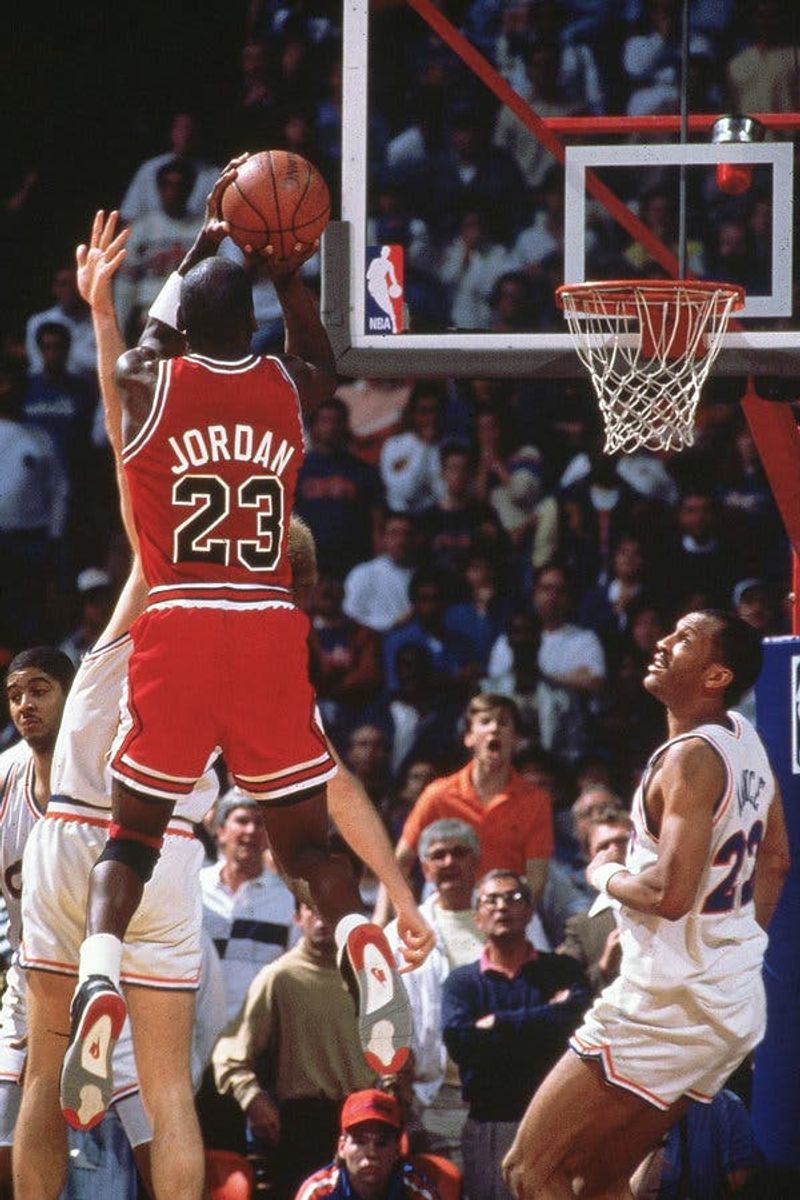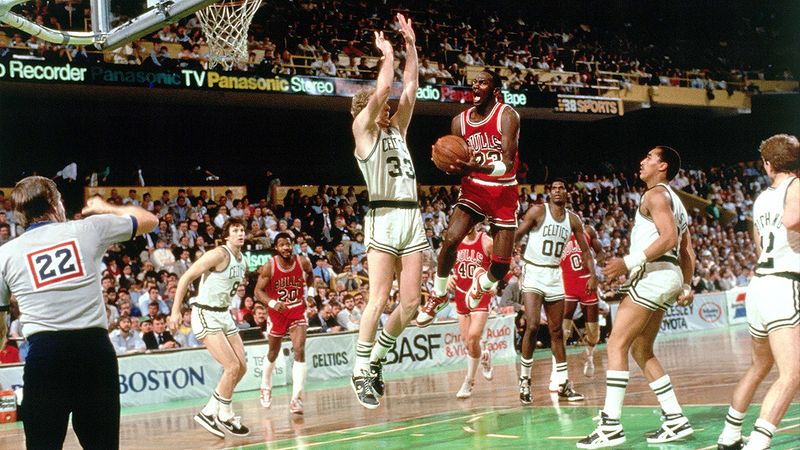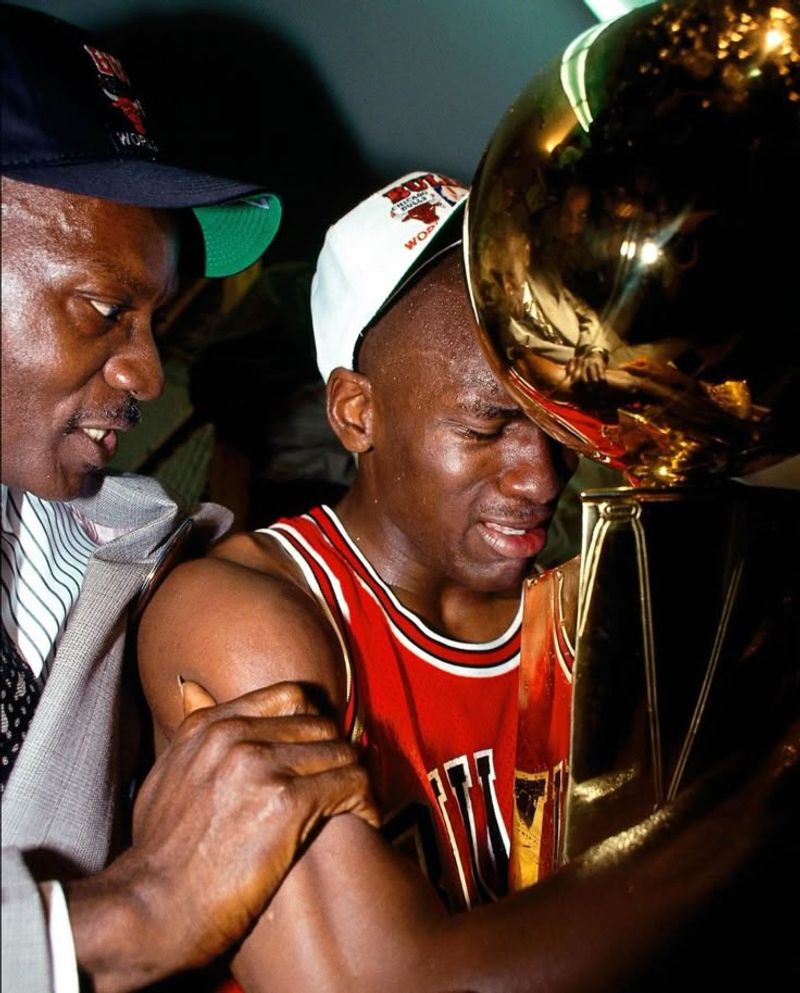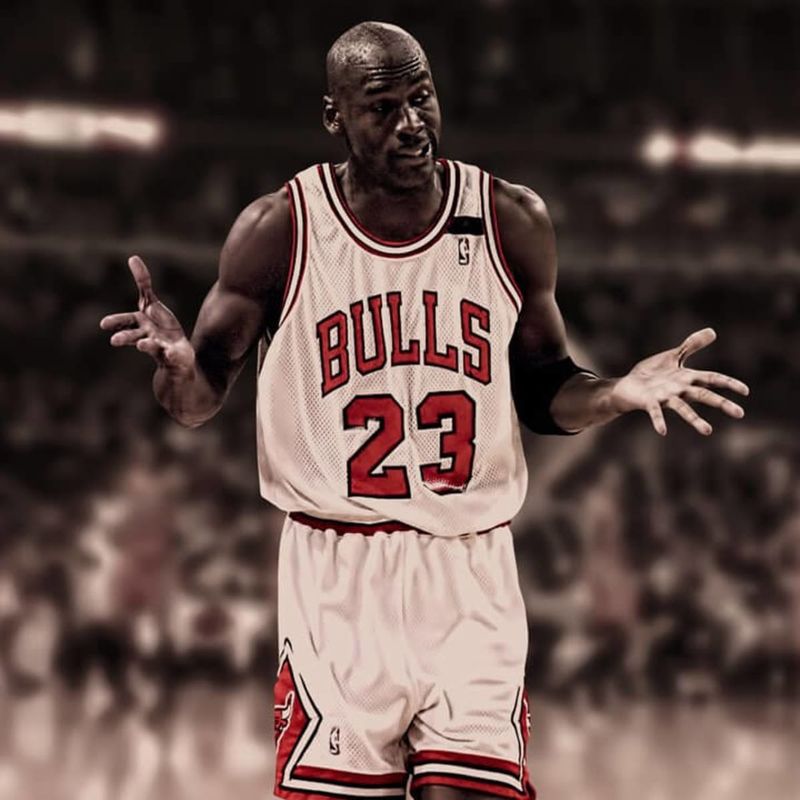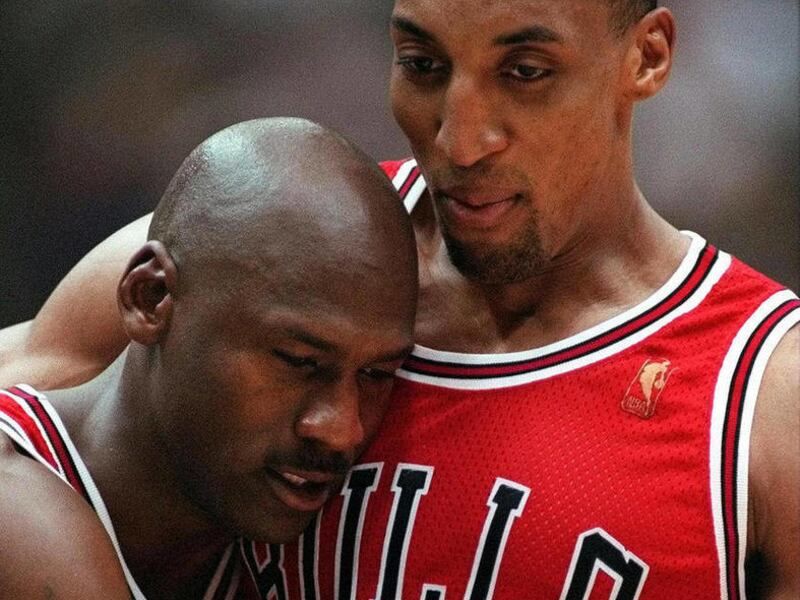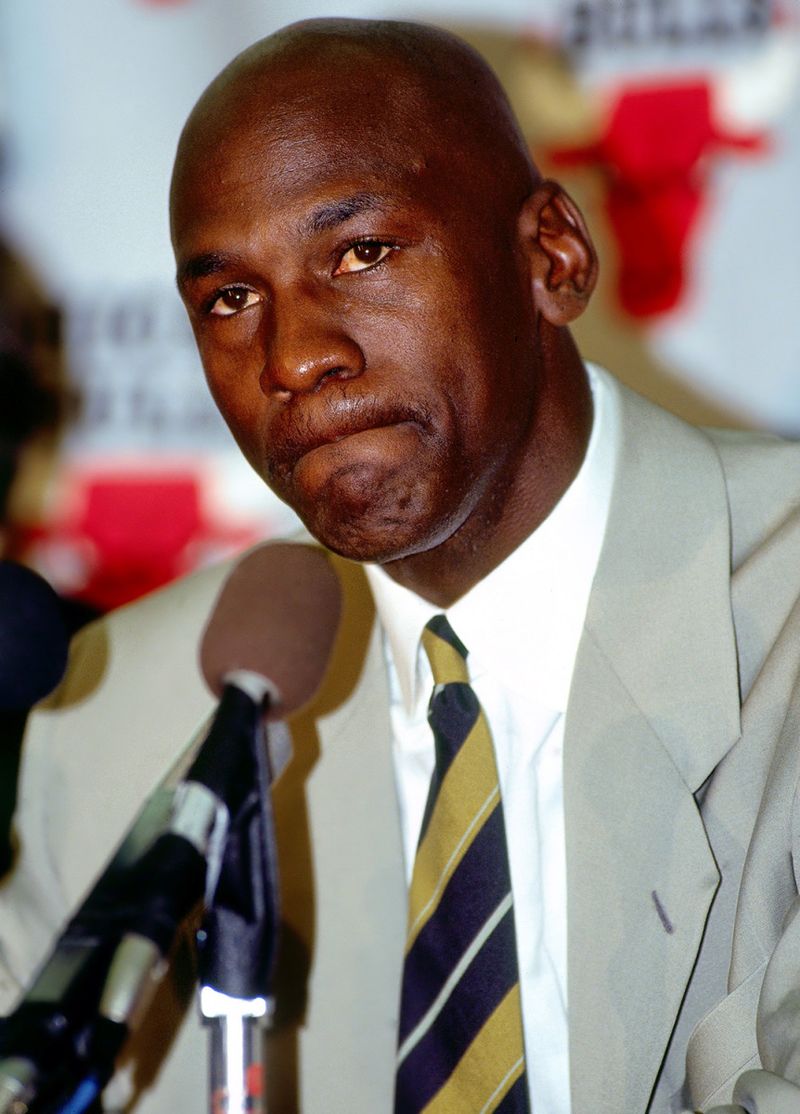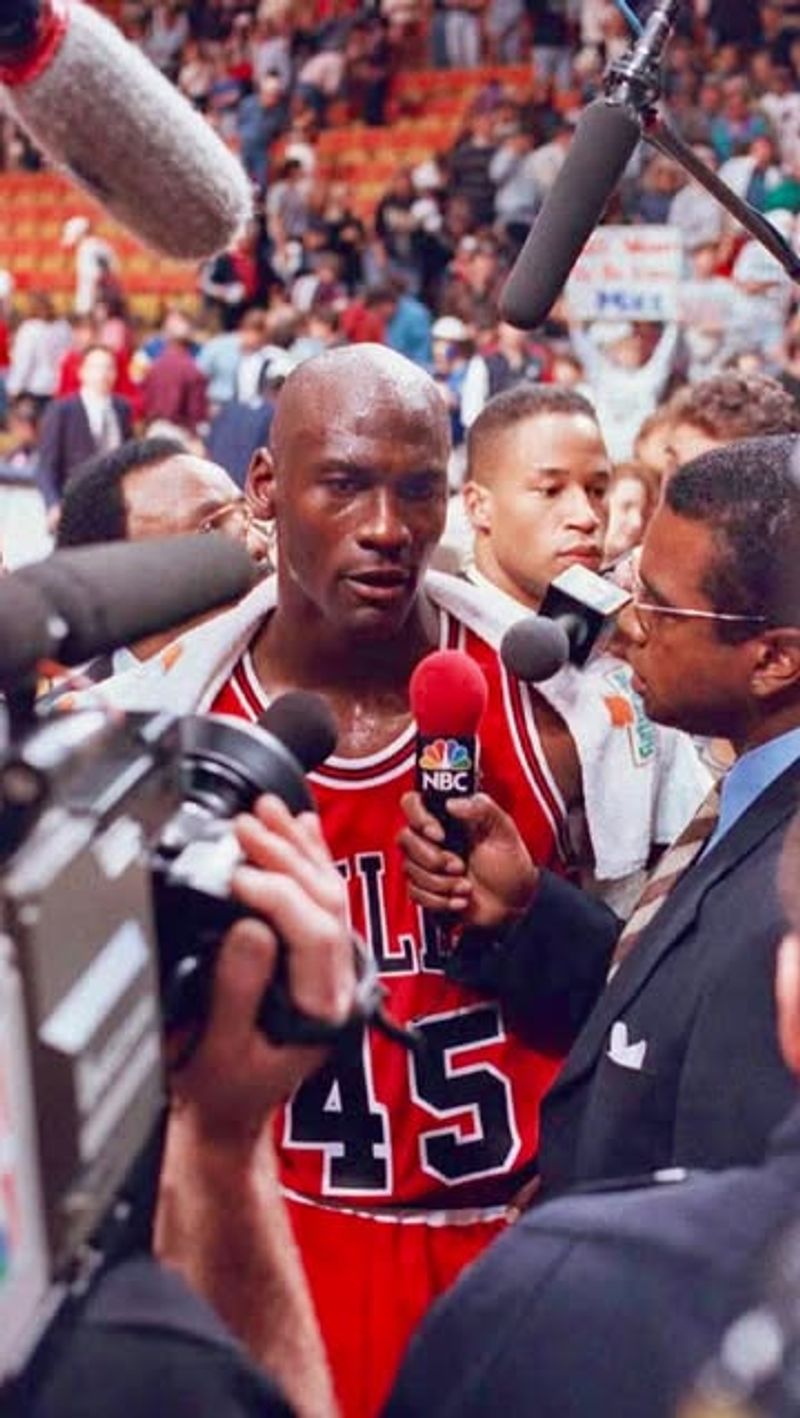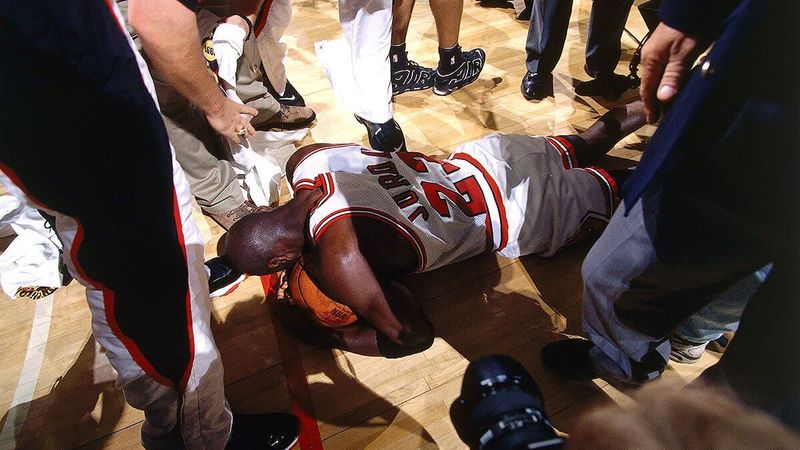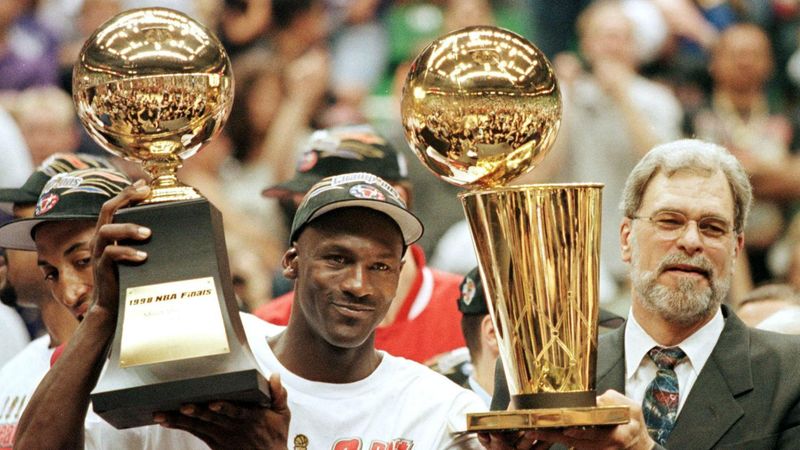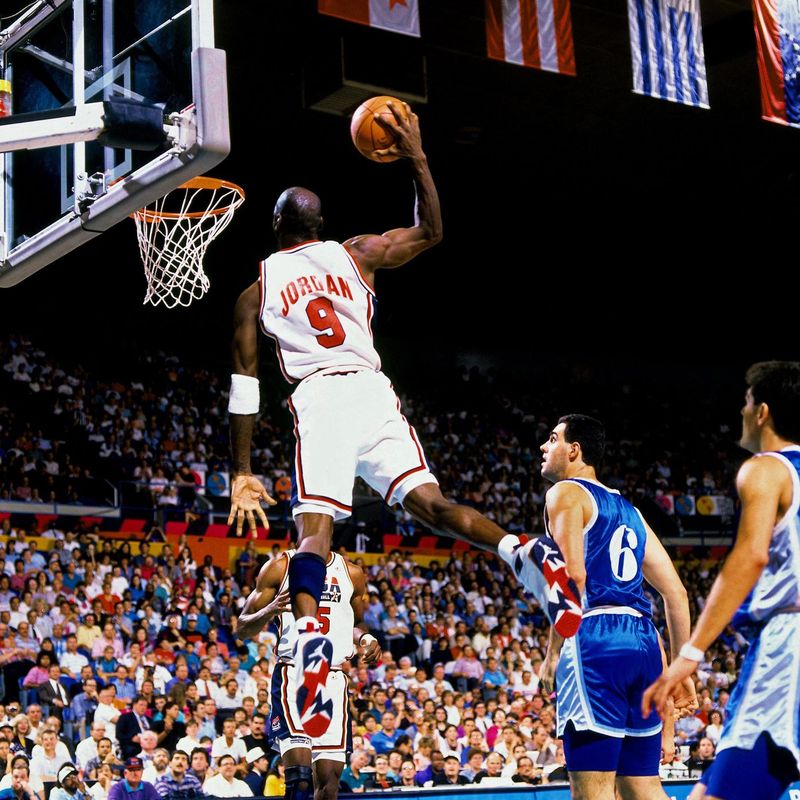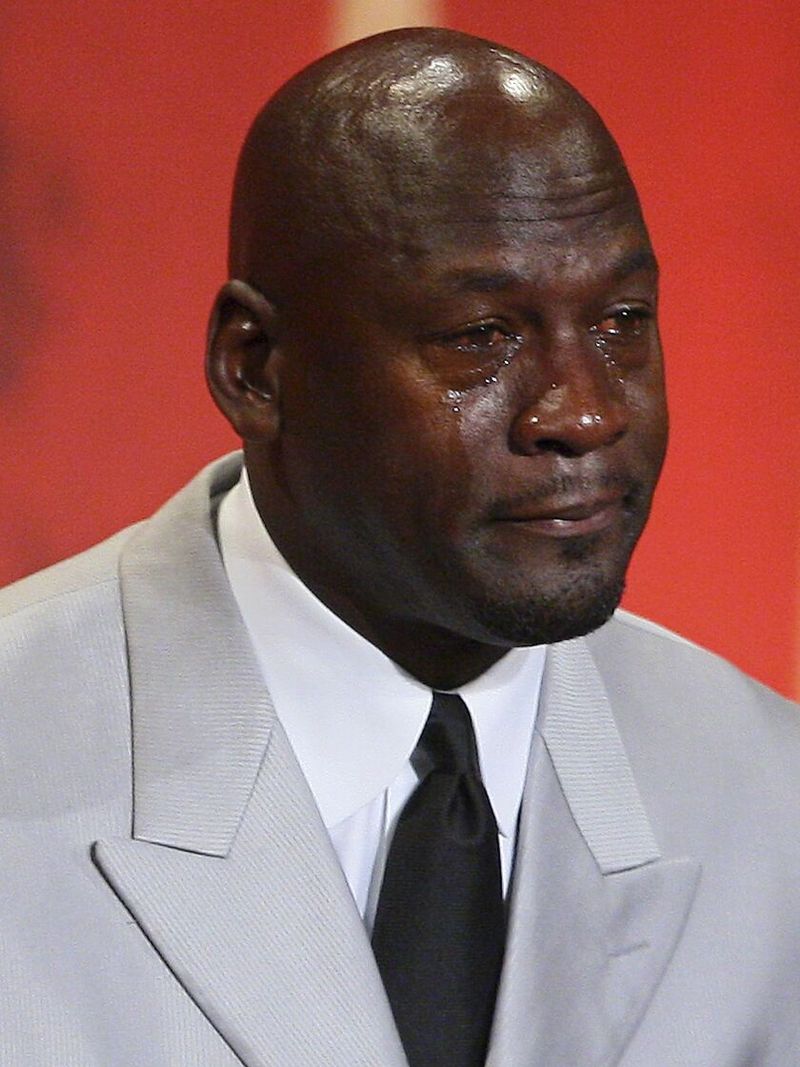Michael Jordan transformed basketball from a sport into a global phenomenon through sheer talent and willpower. His career is filled with moments where he didn’t just win games—he created lasting memories that defined an era. From gravity-defying dunks to championship-clinching shots, these pivotal moments showcase why Jordan isn’t just considered the greatest basketball player ever but a cultural icon who transcended sports entirely.
1. The Shot Over Ehlo
Cleveland fans still wake up in cold sweats thinking about it. The 1989 Eastern Conference first round, Game 5, score tied, three seconds left. Jordan receives the inbound pass, dribbles toward the foul line, and launches himself skyward over Craig Ehlo.
The ball swishes through as the buzzer sounds. Bulls win 101-100. Jordan punches the air wildly while Ehlo collapses to the floor in defeat—two men experiencing opposite ends of athletic destiny.
This wasn’t just a game-winner; it was Jordan announcing himself as basketball’s ultimate closer. The image of his triumphant leap became so iconic that silhouettes of this very moment would later adorn merchandise worldwide.
2. 63 Points Against the Celtics
Larry Bird didn’t mince words after witnessing basketball divinity in the 1986 playoffs: “That wasn’t Michael Jordan out there. That was God disguised as Michael Jordan.” The 23-year-old Chicago guard had just torched Bird’s legendary Celtics team for a playoff-record 63 points—a mark that stands unbroken decades later.
What makes this performance more remarkable? Jordan had missed most of that season with a broken foot, and he was facing arguably the greatest team ever assembled on their home court.
Though the Bulls lost in double overtime, this game marked the moment when basketball insiders realized Jordan wasn’t just another talented player—he was something the sport had never seen before.
3. Dethroning Magic and the Lakers
The passing of the torch couldn’t have been more symbolic. After years of playoff heartbreak, Jordan finally reached the NBA Finals in 1991 against Magic Johnson’s Lakers—basketball royalty of the 1980s.
During Game 2, Jordan delivered a statement play that signaled a new era. Driving to the basket, he elevated for a dunk, switched the ball from right hand to left mid-air to avoid Sam Perkins, and softly laid it in. The move was so spectacular that even opposing Lakers fans gasped in appreciation.
The Bulls won the series in five games, with Jordan collapsing onto the trophy in tears after the final buzzer. The NBA’s greatest player finally had championship validation, and the Jordan dynasty was officially underway.
4. The Legendary Shrug
Nobody expected Michael Jordan to be a three-point shooter that night—least of all Michael himself. Game 1 of the 1992 Finals against Portland turned into an unexpected shooting clinic when Jordan hit six three-pointers in the first half alone.
After the sixth triple splashed through the net, Jordan turned toward the broadcast table and shrugged his shoulders as if to say, “I don’t know what’s happening either.” That spontaneous gesture captured something rare: a moment when even Jordan seemed amazed by his own abilities.
He finished with 35 points in the first half (a Finals record) and 39 for the game. The Bulls won the series in six games, but that shrug remains the enduring image—the moment when Jordan seemed almost supernatural.
5. The Flu Game Heroics
June 11, 1997—Game 5 of the NBA Finals in Utah. Jordan could barely stand upright during timeouts, his body ravaged by what was later revealed to be food poisoning. Team doctors advised him not to play.
Instead, he delivered 38 points, 7 rebounds, 5 assists, and the game-winning three-pointer. The enduring image came during a timeout when an exhausted Jordan collapsed into Scottie Pippen’s arms, barely able to walk off the court under his own power.
This performance transcended sports, becoming a cultural reference point for perseverance against physical limitations. When people talk about mental toughness in athletics, “The Flu Game” is often the first example cited—a moment when Jordan’s legendary will overcame his body’s limitations.
6. Shocking First Retirement
October 6, 1993 stunned the sports world. Michael Jordan—at the absolute peak of his powers after three straight championships—abruptly walked away from basketball at age 30. The press conference was surreal: the planet’s most famous athlete announcing he had nothing left to prove.
The retirement came just months after his father’s tragic murder, adding emotional weight to an already shocking decision. Jordan’s explanation was disarmingly simple: “The desire just isn’t there.”
His departure created a basketball vacuum that no player could fill. Television ratings dropped, ticket sales declined, and the NBA seemed adrift without its North Star. This retirement proved something profound: Jordan hadn’t just dominated basketball—he had become bigger than the game itself.
7. The Two-Word Comeback
“I’m back.” Just two words on a fax machine in March 1995 sent shockwaves through the sports universe. After a baseball detour that proved even Michael Jordan had limitations, he returned to his true calling on the hardwood.
His first games back were uncharacteristically rusty—he even wore number 45 instead of his iconic 23. But during his fifth game back, Jordan dropped 55 points on the Knicks at Madison Square Garden, announcing that the king had indeed returned to his throne.
The comeback itself became legendary for its simplicity and confidence. No athlete before or since could command global attention with just two words, underscoring Jordan’s unprecedented cultural power and the basketball world’s desperate yearning for his return.
8. Father’s Day Championship
Sometimes sports transcends the scoreboard. After returning from retirement, Jordan led the Bulls to a record-breaking 72-10 season in 1995-96, culminating in the NBA Finals against Seattle. The series-clinching Game 6 victory fell on Father’s Day—the first since his father’s murder.
When the final buzzer sounded, Jordan collapsed to the court clutching the game ball, overcome with emotion. In the locker room, he sobbed uncontrollably, the invincible superhero revealing his human heart.
This raw display of grief and triumph resonated with millions who had never seen this side of Jordan. His tearful celebration became one of sports’ most poignant moments—a reminder that behind the aerial acrobatics and killer instinct was a son who still deeply mourned his father’s absence on his greatest days.
9. The Final Shot as a Bull
Seventeen seconds remained in Game 6 of the 1998 NBA Finals. Utah led by one point. Jordan had already orchestrated a steal from Karl Malone seconds earlier.
Moving deliberately toward the basket, Jordan suddenly crossed over Bryon Russell, sending the defender sliding across the floor. Rising for the jumper from the top of the key, Jordan held his follow-through as the ball swished through with 5.2 seconds left. Game over. Championship secured.
This wasn’t just a game-winner—it was the perfect ending to basketball’s greatest story. The last shot Jordan would ever take as a Chicago Bull delivered his sixth championship. The frozen image of his extended arm in follow-through position became basketball’s Mona Lisa, capturing greatness in its purest form.
10. Perfect Finals Record
Six NBA Finals appearances. Six championships. Six Finals MVP awards. No superstar in team sports history has a resume this immaculate.
Jordan’s perfect Finals record represents something beyond mere success—it’s competitive perfection. When the stakes were highest, Jordan not only won but dominated so thoroughly that he was unanimously considered the best player in every championship series he played.
This unblemished record became the gold standard against which all basketball greatness is measured. While other legends have won more total championships or scored more career points, Jordan’s perfect batting average on basketball’s biggest stage remains the most compelling argument for his GOAT status. He didn’t just reach the mountain top—he never failed once he got there.
11. Olympic Dream Team Dominance
Barcelona 1992 assembled the greatest collection of basketball talent ever seen. The Dream Team—featuring Magic, Bird, Barkley and others—was expected to dominate, but one question lingered: who would emerge as the alpha among alphas?
The answer became clear during practices. As documented in Jack McCallum’s book, the most competitive scrimmages in team history saw Jordan take charge, trash-talking and hitting game-winners against fellow Hall of Famers. Even among basketball royalty, he stood alone.
Beyond the gold medal, this Olympic experience globalized basketball like never before. International players lined up for Jordan’s autograph after games, and television viewership exploded worldwide. The Dream Team didn’t just win—they turned basketball into a truly global game with Jordan as its undisputed ambassador.
12. The Hall of Fame Speech
September 11, 2009 revealed that retirement hadn’t softened Michael Jordan’s competitive edge. His Hall of Fame induction speech wasn’t the gracious, humble address many expected—instead, it was a fiery manifesto about the competitive drive that fueled his greatness.
Jordan called out former coaches, teammates, and rivals who had doubted or challenged him. He explained how he manufactured slights to motivate himself even when no real disrespect existed. Some criticized the speech as petty or ungracious.
But true Jordan fans recognized something profound: this wasn’t Jordan being ungrateful—it was him pulling back the curtain on the psychological engine that powered his greatness. Even in basketball’s most prestigious ceremony, Jordan couldn’t help but reveal the unquenchable competitive fire that made him who he was.
